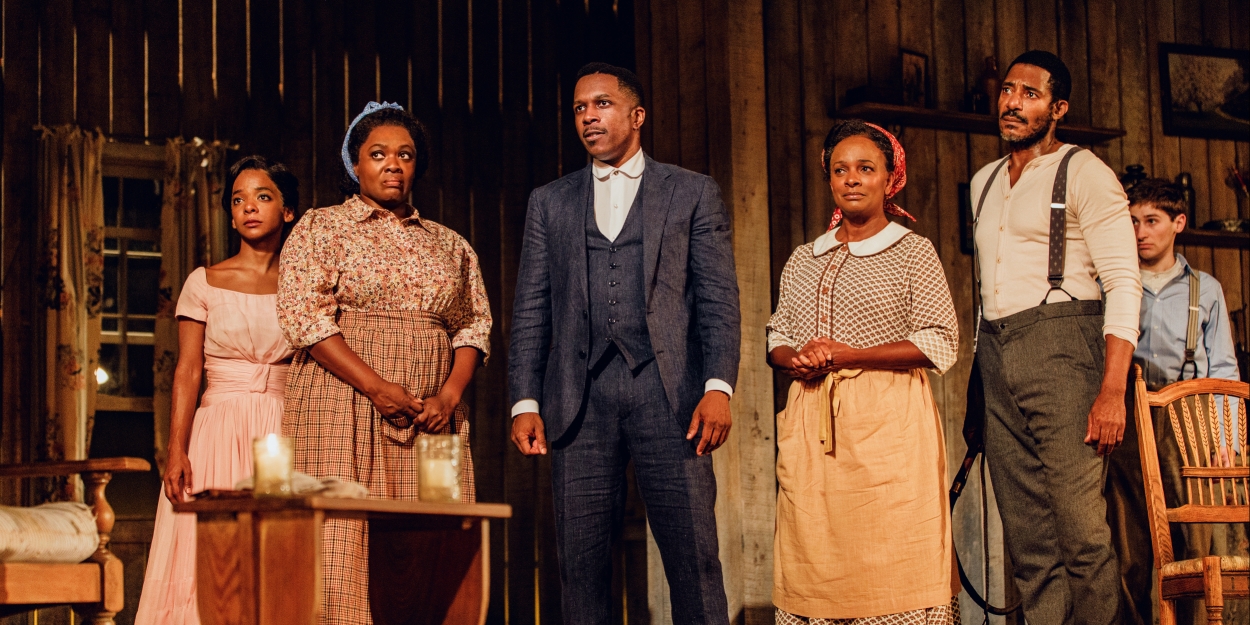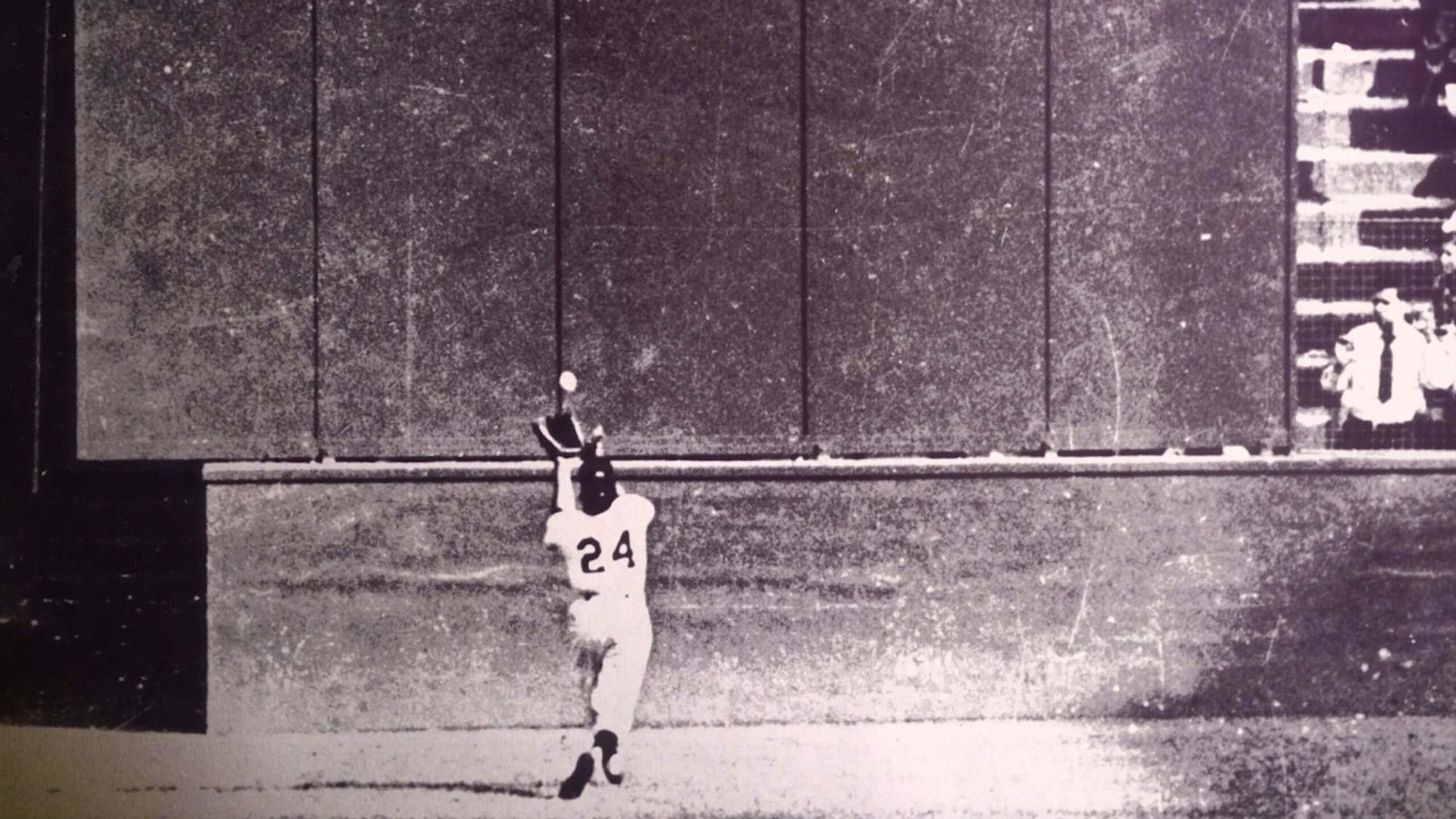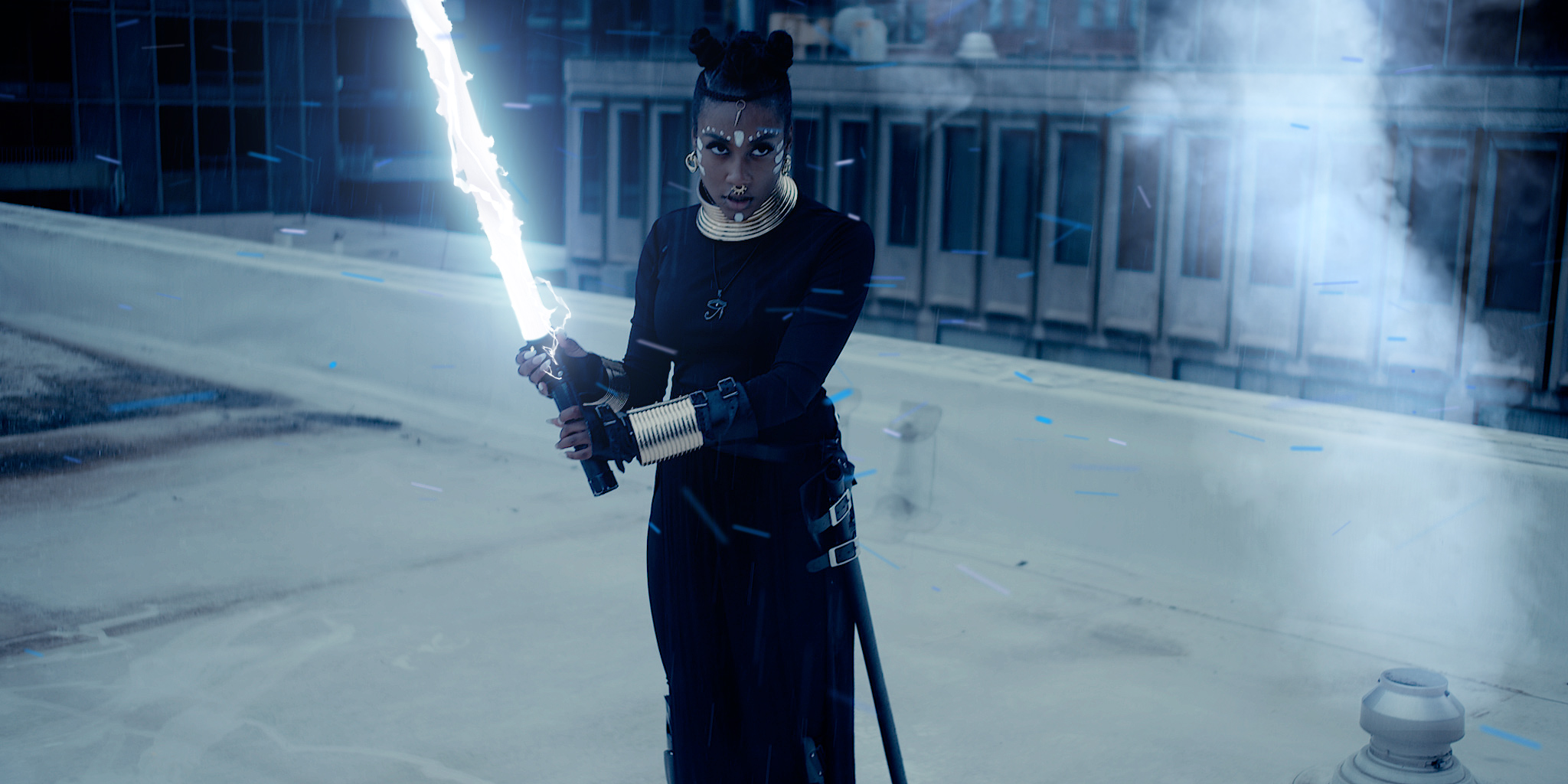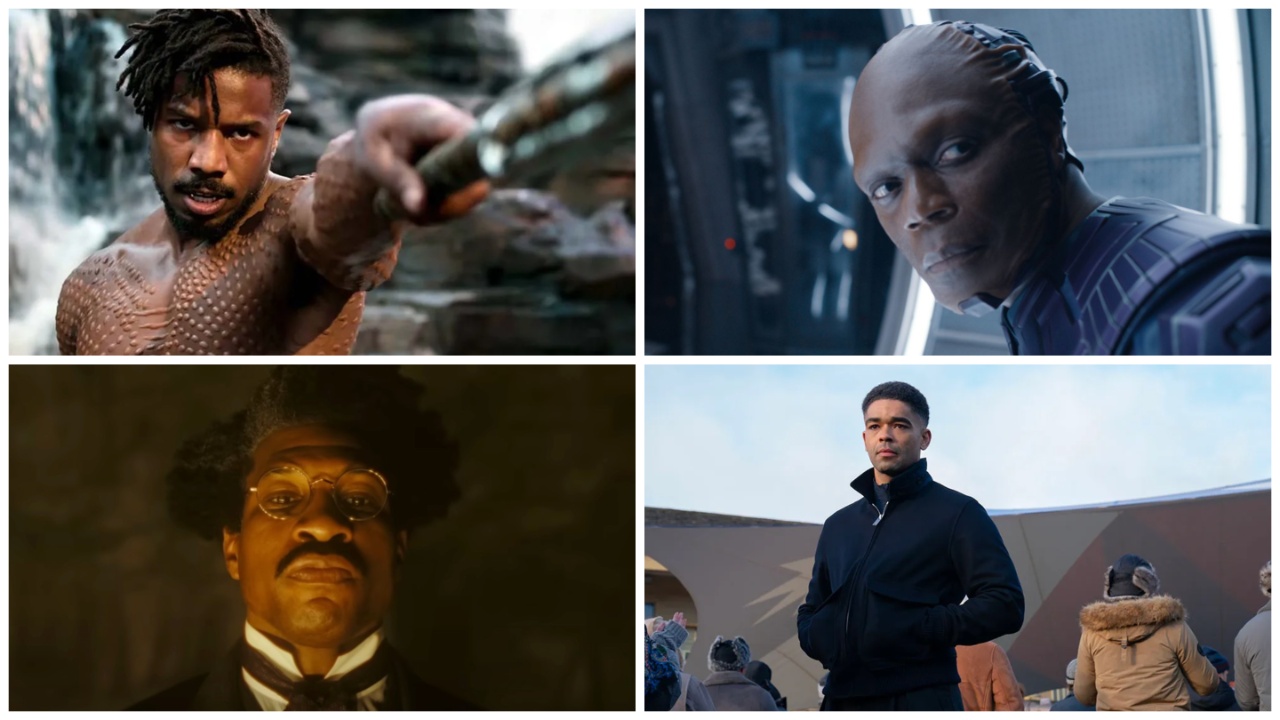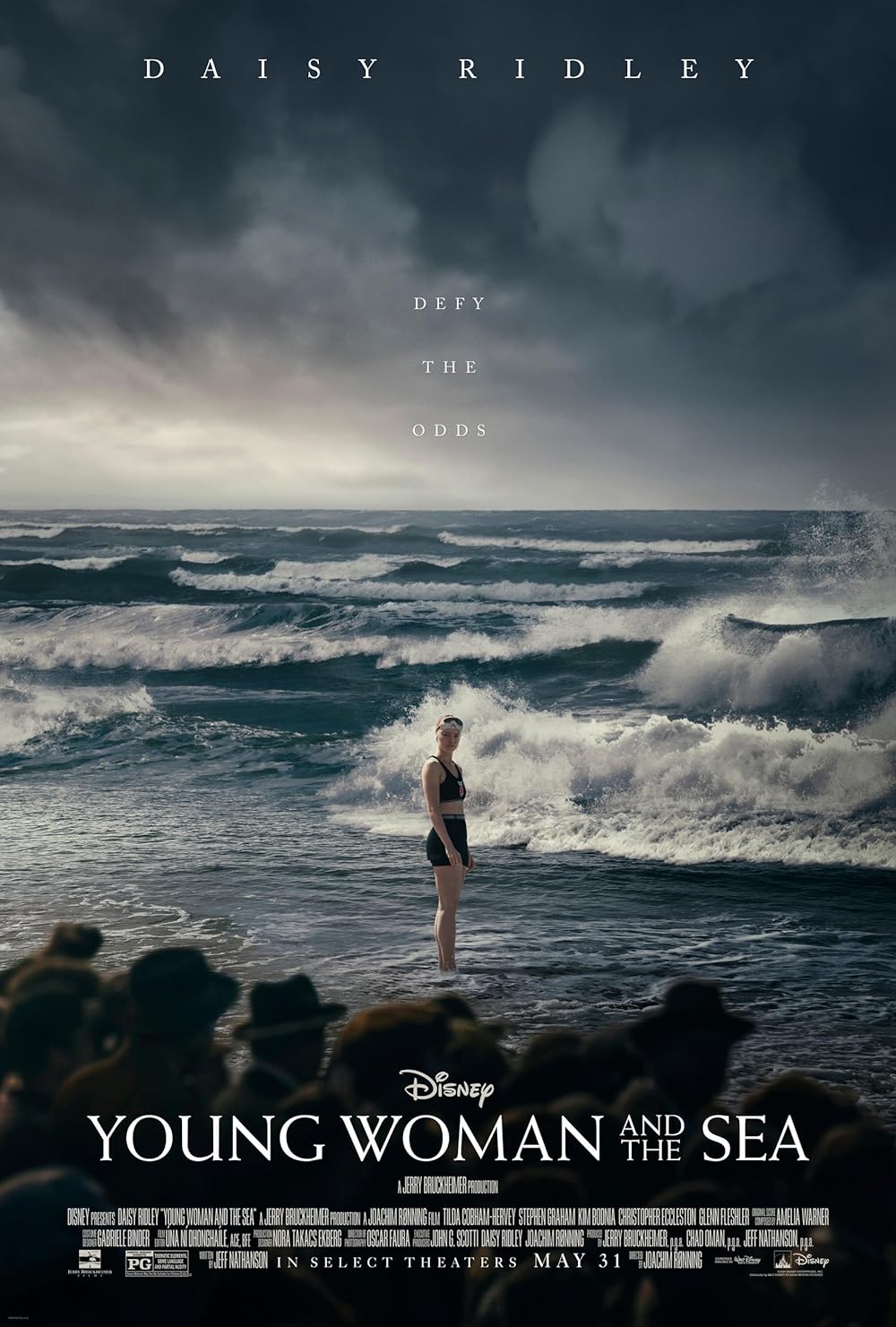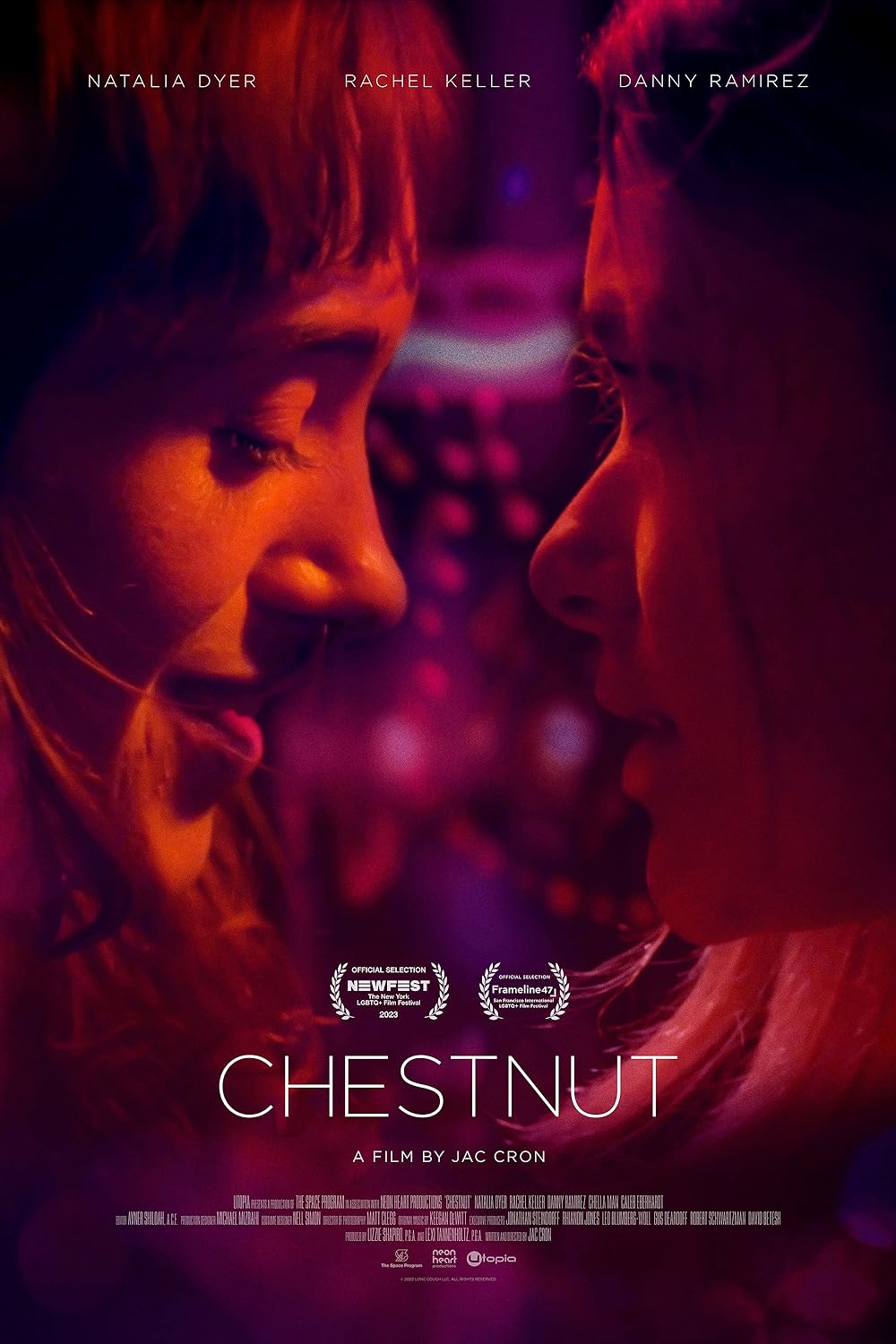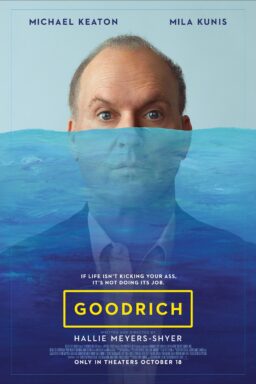Purlie Victorious, Ossie Davis' 1961 satirical play, is an obsession of mine, one I first discovered I had when I saw the 1963 movie version, "Gone are the Days," 14 years ago. I became instantly fascinated by the idea that something this gleefully mocking of White people, and so proud of the survival instinct ingenuity of Black people, could get on Broadway at the height of the Civil Rights movement.
That it was funny—with Black folks crafting the jokes—also struck me as unusual for the time. Because, if you think about it, back then, we weren't allowed to do comedy unless it was in service to shaming and stereotyping our people. Sidney Poitier could crack wise with those nuns in "Lilies of the Field," but he couldn't do "Uptown Saturday Night" in 1963.
I wrote a piece on "Gone are the Days" back in 2010, and I've watched the movie numerous times since then. I was so enamored of the material that my fellow RogerEbert.com contributor Michal Oleszczyk bought me a used copy of the play as a gift. I learned some of the speeches and lines because Davis' language was folksy and wise, colloquial and cultured:
"What's wrong with running? It emancipated more people than Abe Lincoln ever did."
"If slavery comes back, I want to be your agent."
"That is the biggest lie since the devil learned to talk."
"Being colored can be a lot of fun when ain't nobody looking."
"For he who was my skin's enemy was brave enough to die standing for what he believed. And it is the wish of his family—and his friends—that he be buried likewise." (This one's accompanied by a coffin that's rolled onstage standing up.)
Purlie Victorious ran for over 200 performances. For the 100th performance, Dr. Martin Luther King, Jr. attended the show.
Director Nicholas Webster's cinematic version, which starred all the stage performers except one, was as close as I was going to get to seeing "Purlie Victorious" onstage, since it hadn't been staged since its original production. Or so I thought.
I always assumed that a revival was out of the question because Davis and company were playing tongue-in-cheek variations of stereotypes like the Mammy, the tough wife, the shifty preacher, the uncultured maid and the Uncle Tom. But upon closer inspection, we see that they are putting on an act to keep those in power oblivious to just how smart they really are. There's even a line from Purlie that says as much:
"Some of the best pretending in the world is done in front of White folks."
But most people don't look at controversial material with closer inspection. So, a stage version of Purlie Victorious became one of my two biggest "white whales." That phrase, used to define something impossibly desired, was named in honor of the original orca of obsessions, Moby Dick. I'd get this particular white whale when director Kenny Leon staged the 2023 production, the first revival of the play in 62 years.
(If you know how I can capture my other white whale, that is, the director's cut of "The Meteor Man," you'd be doing me a solid. I know most film critics would cite the missing footage from "The Magnificent Ambersons" as their most desired cinematic dream—and I'd like to see that, too. But my white whales skew far more Black-famous.)
A brief history is in order:

By the time Purlie Victorious opened on Broadway on September 28, 1961, Lorraine Hansberry had made Hollywood history with the screenplay adaptation of her seminal play, A Raisin in the Sun. Hansberry became the first Black woman to write a studio picture. Sidney Poitier, who seemed to be in every movie Davis was in at the time, reprised his role as Walter Lee Younger, a role Davis would play after he left the production.
Also, in 1961, Ruby Dee was doing double duty. Not only was she onscreen in Hansberry's film, reprising her role as Walter Lee's wife, Ruth Younger, but she was also onstage opposite her husband, Ossie, on the opening night of Purlie Victorious, playing a role he wrote specifically for her country bumpkin Lutiebelle Gussie Mae Jenkins.
Tonally, these two plays have little in common. A Raisin in the Sun is a tense, uplifting family drama presented with the gravitas of Greek tragedy; Purlie Victorious is a boisterous, side-splitting satire pitched as broadly as a barn. But the two plays have more similarities than you think. Both were made into Tony-winning 1970s musicals, Purlie and Raisin, that the original authors had no hand in creating, though Purlie uses so much of Davis' play that he got a writing credit on it, anyway.
More importantly, the Youngers and Purlie Victorious Judson have the same goal: to buy property in a White neighborhood. And the money needed to do so comes from the death of a family member. For the Youngers, it's a more affordable house in Clyborne Park whose down payment is meant to come from a $10,000 life insurance policy.
In Purlie's case, it's Big Bethel, the church of his youth, where he hopes to start a congregation that includes Lutiebelle, his trickster brother Gitlow (Godfrey Cambridge in his Tony-nominated role), his tough-as-nails sister-in-law, Missy (Helen Martin) and sharp-tongued caretaker Idella (Beah Richards). Big Bethel can be purchased if Purlie can convince Ol' Cap'n Cotchipee (Sorrell Booke—yes, Boss Hogg), the rich White owner of all the land the Judsons' sharecrop, to give him a $500 inheritance promised to his aunt's next of kin, Cousin Bee.
The only problem is that Cousin Bee is dead, and Lutiebelle, who looks nothing like the deceased, is being coached to impersonate her. Gitlow, whom Ol' Cap'n trusts enough to assign him "Deputy-for-the-Colored" because Gitlow pretends to believe he's inferior, is tasked with providing a distraction. He comes up with a fake award for Ol' Cap'n: the Great White Father award.

Meanwhile, Idella, who's supposed to be the resident "mammy" to Ol' Cap'n's son and Purlie's childhood friend Charlie Cotchipee (Alan Alda), is instead filling the young man's head with ideas about integration and equal rights. His new beliefs, expressed in White company, earn him the black eye he sports for the duration of the play.
Since this is a comedy, everything goes awry before delivering a happy ending and "the first integrated funeral in the sovereign segregated state of Georgia." Before that, we're privy to some outrageous, potentially offensive dialogue, most of it delivered by Gitlow and Ol' Cap'n. It was controversial in 1961, so you can imagine how poorly it might play in 2023
But first, let's deal with the musical version.
Purlie, which premiered in 1970, kept much of that controversial dialogue. Unbeknownst to me at the time, the musical version was my first introduction to Purlie's story, as I'd seen a production of it on PBS when I was about 12 years old. Melba Moore, who sang the opening credits song to "Cotton Comes to Harlem," Davis' cinematic directorial debut, won the Tony for playing Lutiebelle, and Cleavon Little won as well for playing Purlie, clearly a rehearsal for his similar role as Black Bart in "Blazing Saddles." (Robert Guillaume played the role for PBS, however.)
Since Cambridge was busy doing "Cotton Comes to Harlem," the role of Gitlow went to George Jefferson himself, Sherman Hemsley. This is the reason why audiences didn't see George on the early seasons of "All in the Family." Norman Lear waited until the end of Purlie's run because he wanted Hemsley for the role that much. You can draw comparisons between George and Gitlow (they have the same swagger, for example).
Chicago's own Goodman Theater did a revival of Purlie the musical in 2005, which would have been the last time the story appeared in any incarnation had we not gotten last year's revival.

Of course, the second I heard Leslie Odom, Jr.—Mr. Burr, sir from Hamilton—would be starring in Kenny Leon's production of Purlie Victorious, I leaped at a ticket. Truth be told, it made no difference who was in this thing; I was going! I brought that raggedy old copy of the play with me to the theater. There I sat, silently mouthing lines along with Odom's Purlie, Kara Young's Lutiebelle, and Billie Eugene Jones' Gitlow. The audience, which was predominantly Black, laughed at even the most questionable lines.
I also laughed my head off, and shed a tear at Purlie's final speech, because it felt like its legendary playwright was speaking to me from the Great Beyond:
"Tonight, my friends, I find, in being Black, a thing of beauty: a joy; a strength; a secret cup of gladness…Be loyal to yourselves: your skin; your hair; your lips; your Southern speech, your laughing kindness…Accept in full the sweetness of your blackness—not willing to be red, nor white, nor yellow, nor any other race, or face, but this."
That final speech also contains my favorite snarky line in the play: "do what you can for the white folks."
Being Black is fun when everybody's looking, too.

